#systems
Note
Wait you're out as plural to family? Could you link to post or tag you have regarding that? Considering coming out to others so I'd really like to read others experiences. Thanks.
Not sure when we talked about it. But it basically all went wrong. It started with my host talking about tulpamancy with his family a lot for maybe a couple days to test the waters, me really not wanting him to and just being okay with being a secret, my host's mom deducing that he wanted to make a tulpa, and him confessing that I already existed. And this was only a few days after I became self-aware.
It went poorly. His mom wasn't happy. And this conversation happened after the body had been awake all day while my host was too tired to adequately explain things.
He also has a habit of explaining everything in the worst way possible in general for some reason, which made the whole thing even worse.
And to be honest, it felt a little bit like he was wanting someone to tell him he was crazy or that I wasn't real. Like maybe that would make things easier. And that led to us fighting.
It was a disaster!
(He later told his brother a couple weeks after that, and his dad overheard him talking about it one day with his mom and just... never cared. Which is pretty on brand.)
Things got better. While his mom was upset at first, we worked through it, she became more accepting, and in hindsight, I'm glad everyone found out.
But... don't do what he did.
Read this instead:
When you do come out, make sure you're of clear mind. Don't do it while tired. Or intoxicated either for that matter. We weren't, but I suspect some people might try the liquid courage route, and I'm betting that anything that impairs your ability to rationally explain yourselves is a bad move.
And be confident. Make sure this is what you and your headmates want to do, plan how you want to come out, and go for it.
#pro endogenic#plural#plurality#multiplicity#sysblr#tulpa#tulpas#tulpagenic#tulpamancy#endogenic#systems#system#pro endo#endo safe#endogenic system#plural community#system stuff#system things#actually plural#actually a system
31 notes
·
View notes
Note
Can you make a system role for an alter that helps us deal with pain? Sometimes this is by fronting but also sometimes just by being there and comforting us
Pain calmer
Alters of a system who's role is to front during times of pain, this can be physical and emotional
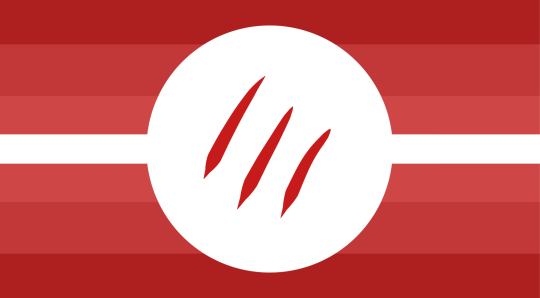
Flag by Saturn, requested by asker
[ENDOS DNI]
Pinterest link
#flags#flag coining#system flags#systems#alter roles#alter#alter flags#role flags#dissociative identity disorder#did#osdd did#did osdd#system stuff#plural system#system#did system#dissociative system#sysblr#system community#system things#traumagenic system#anti endo#endos dni#endos fuck off#system roles
27 notes
·
View notes
Text
y'know what? fuck it! shout out to all my fellow "stereotypes!"
shoutout to my fellow autists who do feel like a kid in an adult’s body because their mind works differently. shoutout to my fellow systems who have alters that lash out, and/or alters of fictives from popular media. shoutout to my fellow bpd folks who get clingy and have abandonment issues. shoutout to the autists who act "robotic" and love trains or dinosaurs. shoutout to the people with OCD/OCPD who do get obsessions with cleanliness and orderliness, who do wash their hands over and over, who do lock and unlock the doors a specific number of times. shoutout to the people struggling with intrusive thoughts that do get the violent ones and the sexual ones, not just the self-injurious ones.
shoutout to my fellow flamboyant gays. shoutout to the lesbians who wear flannel and have buzzcuts. shoutout to the aces who like space and cake and dragons. shoutout to the aces who are stoic and don't have an interest in bonding with people even non-romantically. shoutout to the nbs with neopronouns and names like "star." shoutout to the queers(or otherwise lgbt+ folk if you don't use that term for yourself) who have dyed and cut hair, wear a shitload of pronoun pins, wear a rainbow binder that can be seen, and love talking about how much they love being part of the community.
shoutout to my fellow activists who yell and get mad. shoutout to my fellow activists who bring up the problems in things, even if it means "always making it political." shoutout to the feminists who don't wear bras or shave, and don't get along with men.
shoutout to the men who struggle with emotions. shoutout to the men who love blue and camo and trucks and fixing things and sports and hunting. shoutout to the women who cry easily. shoutout to the women who take hours getting ready. shoutout to the women who love pink and shopping and shoes and cooking and taking care of kids and cleaning.
i'm very white so i'll summarize the next one: shoutout to all the BIPOC fitting into "stereotypes" as well. if anyone who is BIPOC wants to give specific shout outs, go for it!
to anyone who fits these or any other "stereotypes":
You are not a stereotype. You are a person with traits and qualities. You are not doing anything wrong by being true to yourself, whether that means fitting expectations or not.
Anyone who hates whatever group you are in for these "stereotypes" would hate your group regardless; anyone who accuses you of "giving your group a bad name" is deflecting the hate onto you because it's easier to pretend that it's nothing they are doing that gets that hatred; the truth is, bigots are bigots and they will always find a "reason" to be hateful. You trying to avoid "stereotypes" will never change that.
(do not fucking clown on this post. you will not get a debate from me, you will get blocked.)
#long post#important#autism#systems#did#osdd#bpd#borderline personality disorder#ocd#ocpd#gay#lesbian#ace#asexual#nonbinary#neopronouns#queer#lbgt#feminism#activism#anti transmed#stereotypes
12K notes
·
View notes
Quote
A man is so prone to systems and to abstract conclusions that he is prepared to distort the truth on purpose, prepared to deny the visible and the audible just so he can justify his own logic.
Fyodor Dostoyevsky, Notes from Underground
#philosophy#quotes#Fyodor Dostoyevsky#Notes from Underground#abstract#abstractions#systems#logic#reason#rationality#truth
2K notes
·
View notes
Text
"real people with DID wish fakers would stop faking"
girl there are people in my head who don't like me and my memory resets every 2½ hours. I promise you I have better things to fucking worry about.
#actually did#did osdd#sysblr#dissociative system#actually dissociative#did community#dissociative amnesia#systems#did alter#osddid#dissociation#complex dissociative disorder#dissociative identity disorder#traumagenic osdd#actually osdd#osdd system#osdd alter#did system
2K notes
·
View notes
Text
Traumagenic system: a plural system which formed as a result of trauma.
Endogenic system: a plural system that formed without trauma, or whose formation was not caused by trauma.
Singlet: not a plural system.
Keep it civil in the comments.
–
We ask your questions so you don’t have to! Submit your questions to have them posted anonymously as polls.
#polls#incognito polls#anonymous#tumblr polls#tumblr users#questions#endogenic system#polls about brains#systems#submitted nov 9
384 notes
·
View notes
Text
If you need help with discovering who you are or you have a new alter you’re trying to figure out we made a short quiz you can use to categorize some basic things like gender, hair color and personality traits :) We found it helpful and we hope you do too!
FYI this will not ask for your email. You can complete it completely anonymously. To see a summary of responses you can submit then on the next page re-review your responses in full!
#system things#did positivity#osdd positivity#osdd things#actually osdd#did things#system positivity#positive mental health#did#osdd#multiplicity#systems
613 notes
·
View notes
Text
systems, multiples, plurals, etc. - you're allowed to just experience yourselves. you don't need other people to agree whatever you're experiencing is real - it's real just by you experiencing it. you can trust yourself. it's okay, i promise <3
#softspoonie#systems#plural#plural positivity#system positivity#traumagenic#endogenic#endo safe#did#osdd#udd#dissociative system#endogenic system#traumgenic system#pdid#partial did#mixed origin#mixed origin positivity#created system#median system#median#multiple#multiplicity#positivity#mental health#mental health positivity#neurodivergency#neurodivergent positivity#neurodivergent#mental illness
2K notes
·
View notes
Note
The problem isn’t plurality. The problem is the language around DID from plural communities and even the DID community. People who have DID but are in denial may take much longer to accept the diagnosis and work to better understand themselves because they may not be able to relate to how it’s spoken about in online spaces. Particularly people who do not feel comfortable viewing themselves as multiple identities in one. Although that is the most popular representation in both media and online spaces, more often than not that isn’t actually the lived experience. You just don’t see that representation as much because people with it are much less likely to talk about it due to the shame they have around it. Shame is often a major component of surviving trauma. Shame and dissociation go hand in hand. Nuance and awareness are both so important in these types of conversations. It’s sort of similar to how in the autistic community there’s a major lack of representation from nonverbal autistics, despite them making up at least 25% of the total community. The lack of representation doesn’t mean we can pretend to lack awareness of their existence.
I know you don’t believe you’re causing any harm but I’m sorry to say that you are. Which isn’t to say that no harm isn’t also being done to you. It’s just not such a black and white matter. I’m not speaking on behalf of anti-endos. I agree- it’s stupid to hate on a group of people for how they identify. I’m speaking on behalf of highly traumatized individuals who may be looking for answers and wind up getting lost and more confused.
I’m sorry if my intentions with messaging got lost in translation at all. I have a learning disability that affects my ability to process and organize language.
Thanks for the clarification, and sorry for misunderstanding your earlier post.
So let's address this.
Is this a problem?
A problem with this whole topic is, first, that I think we need to see some statistics.
And preferably recent statistics because I think identity has changed a lot in the last 40 years. Maybe there's a silent majority of people with DID who don't view themselves as multiple identities/people offline and are getting spoken over. But I would want to see evidence of that.
Even if some studies from the 80s or 90s showed that most people with DID didn't view themselves as separate people/identities, the advent of the internet age and ability to find community with others with DID likely impacted the culture around the disorder.
Even if this is the case...
Is this our problem?
End of the day, I'm a tulpa identifying as a tulpa. It seems kind of silly to me to think someone with DID would see me, a tulpa who is also plural, decide that because I'm a plural tulpa and people with DID are plural and they don't relate to me, that they can't have DID.
There are a lot of leaps there and most don't make much sense.
And all while the presentations you say are harmful are just as common in anti-endo spaces. Seriously, look at DID TikTok. Almost all anti-endo, and all presenting the way you say is a problem. And with much larger influence than myself.
So this issue, if it is an issue, isn't because of the inclusive plural community, and would clearly exist without it.
I don't think the plural label has anything to do with it.
Community Comparisons:
One of the main mantras you'll find in the plural community is that if you feel plural, you probably are plural. Every system is valid, no matter how distinct your headmates feel. Terms like "median system" were coined to denote systems who feel in between multiple and singlet, and still fall under the plural umbrella.
Meanwhile, the DID community is rife with fakeclaiming and gatekeeping of anyone who doesn't meet whatever arbitrary criteria armchair psychologists made up. All while, again, exhibiting the same types of traits you point to the plural community for. (And yes, you do say "even the DID community" does that. I just think you're underselling it a bit.)
Hard Truth: There will always be DID systems who won't relate to presentations of DID
DID, while having core traits in the way that there will be other agents or parts that can takeover, and there will be some sort of amnesia (under the DSM) is incredibly diverse in presentation.
Kluft wrote a paper outlining about 20 common presentations of DID he identified back in the 90s.
And it can only be assumed that more presentations have been identified since.
The reality is that not every presentation will be represented. Not everyone will be able to relate to every single person with their disorder. And there are going to be some people with rarer, or at least less popular presentations online or in pop culture, who are going to feel underrepresented.
Personally, I think starting from a place of "if you feel plural, you're plural" is going to benefit far more DID systems than it would harm, giving them space to explore their connections with their headmates regardless of how similar or how distinct those headmates feel.
It doesn't matter if they're people, parts, facets, voices or whatever else they decide to identify them as.
There are a lot of things that we don't relate to the majority of other plurals about. But I think the solution is to normalize being able to identify with something without necessarily having to relate to every experience under the umbrella.
25 notes
·
View notes
Text
Tabs give me superpowers

Berliners: Otherland has added a second date (Jan 28) for my book-talk after the first one sold out - book now!

"Lifehacking" is in pretty bad odor these days, and with good reason: a once-useful catch-all for describing how to make things easier has become a pit of productivity porn, grifter hustling, and anodyne advice wreathed in superlatives and transformed into SEO-compliant listicles.
But I was there when lifehacking was born, and I'm here to tell you, it wasn't always thus. Lifehacking attained liftoff exactly 19 years and 348 days ago, on Feb 11, 2004, when Danny O'Brien presented "Life Hacks: Tech Secrets of Overprolific Alpha Geeks" at the 0'Reilly Emerging Technology Conference (aka ETCON). I was there, and I took notes:
https://craphound.com/lifehacksetcon04.txt
O'Brien's inspiration was his social circle, in which people he knew to be no smarter or better or motivated than anyone else in that group were somehow able to do much more than their peers, in some specific domain. O'Brien delved deeply into these peoples' lives and discovered that each of them had merely ("merely!") gotten very good at using one or two tools to automate things that would otherwise take up a lot of their time.
These "hacks" freed up their practitioners to focus on things that mattered more to them. They accomplished the goal set out in David Allen's Getting Things Done: to make a conscious choice about which things you are going to fail to do today, rather than defaulting to doing the things that are easy and trivial, at the expense of the things that matter, but are more complicated:
https://gettingthingsdone.com/what-is-gtd/
One trait all those lifehacks shared: everyone who created a little hack was faintly embarrassed by it, and assumed that others who learned about their tricks would find them trivial or foolish. O'Brien changed the world by showing that other people were, in fact, delighted and excited to learn about their peers' cool little tricks.
(Unfortunately, this eventually opened the floodgates of overheated posts about some miraculous hack that turned out to indeed be silly and trivial or even actively bad, but that wasn't O'Brien's fault!)
I'm one of those people whom others perceive as very "productive." There are some objective metrics on which this is true: I wrote nine books during lockdown, for example. Like the lifehackers O'Brien documented in 2004, I have lots of little hacks that aren't merely a way of getting more done – they're a way to make sure that I get the stuff that matters to me (taking care of my family and my health, and writing books) done.
A lot of these lifehacks boil down to making your life easier. There's a spot on our kitchen counter where I put e-waste. Whenever I go out to the car, I carry any e-waste out and put it in a bag in the trunk. Any time I'm near our city dump, I stop and throw the bag into their e-waste bin. This is now a habit, and habits are things you get for free: I spend zero time thinking about e-waste, which means I have more time to think about things that matter (and our e-waste still ends up in the right place).
There's other ways I use habits to make my life easier: after many years, I learned how to write every day:
https://pluralistic.net/2023/01/22/walking-the-plank/
For longer-form works like novels, I "leave myself a rough edge," finishing the day's work in the middle of a sentence. That way I get a few words for free the next day, meaning I never start the day's work wondering which words I'll type:
https://locusmag.com/2014/01/cory-doctorow-cheap-writing-tricks/
One of the most powerful habits I've cultivated is to have a group of daily tabs that I open in a new browser every morning. The meat of this tab group is websites I want to check in with every day, either because they don't have RSS feeds, or because I want to make sure I never miss an update.
This tab-group habit started before RSS was widespread, when most of the websites I wanted to check in on every day didn't have feeds yet, and for many years, this group was just a set of daily reads. But over the years, I started throwing things in the tab-group that I needed to stay on top of.
My daily tabs are in a folder called "unfucked rota" (they were originally in a folder called "rota," which got corrupted and had to be reconstructed in a folder I called "fucked rota," until I finally took a couple hours off and got it in good running order, hence "unfucked rota"). As I type this, "unfucked rota" contains more than a hundred websites I visit every morning, but it also contains:
The edit-history pages for four Wikipedia entries I'm watching;
Chronological feeds of my books on Amazon and Audible, to catch counterfeits as they are posted;
The parent notification portal for my kid's school;
The mileage history for the airline I flew on yesterday (I'll delete this once the flight is posted);
The credit card history for a card I reported a fraudulent charge on (I'll delete this once the refund is posted);
The sell-pages for three products that are out of stock (I'll delete these once the products are in stock and ordered);
A bookmarked newest-first Ebay search for a shirt I like that has been discontinued by the manufacturer;
The new-survey-completed pages for my last two Kickstarters;
The courier tracking page for an item being shipped sea-freight to me from Asia.
The tail end of this unfucked rota changes all the time, but as you can tell, it's got a lot of stuff that would be time-consuming to build a whole new system to track, but which has a web-page that can be easily added to a daily, habitual check-in and then removed when it's not relevant anymore.
Some of these things have email notifiers or RSS feeds, but those are too easy to lose in the noise. I generally delete email from ecommerce sites unread, since 99.99% of the messages they send me are unsolicited marketing nonsense, not the "notify me when this is back in stock" message I do want to see (same goes for my kid's school, which sends me fifty unimportant messages for every message that I must reply to).
Most of the internet is still on the web, which means it can be bookmarked, which means that it takes me one second to add it to the group of things I'm staying on top of, and one second to remove from that group. I get up in the morning, middle-click the "unfucked rota" item in my bookmarks pane, make a cup of coffee, and then sit down and race through those tabs, close-close-close.
It takes less than a second to scan a tab to see if it's changed (and if I close a tab too quickly, the ctrl-shift-T "unclose" shortcut is there in muscle-memory, another habit). The whole process takes between one and 15 minutes (depending on whether there's anything useful and new in one of those tabs).
Tabs, like lifehacks, are also in bad odor. Everyone stresses about how many tabs they have open. It's even inspired Rusty Foster's excellent newsletter, Today In Tabs:
https://www.todayintabs.com/
But this is a very different way to think about tabs. Rather than opening a window full of tabs that need your detailed, once-off attention later, this method is about using groups of tabs so that you can pay cursory, frequent attention to them.
In a world full of administrative burdens, where firms and institutions play the "sure, we'll do that, but you're going to have to track our progress" game to get out of living up to their obligations, this method is a powerful countermeasure:
https://memex.craphound.com/2015/02/02/david-graebers-the-utopia-of-rules-on-technology-stupidity-and-the-secret-joys-of-bureaucracy/
My little tab habit is so incredibly useful, such a powerful way to seize back time and power from powerful actors who impose burdens on me, that I sometimes forget how, for other people, tabs are a symptom of a life that's spiraling out of control. For me, a couple hundred tabs are a symbol of a couple hundred tasks that I'm totally on top of, a symbol of control wrestled back from others who are hostile to my interests.
This isn't how tabs were "meant" to be used, of course. It's an example of the kind of "innovation" that comes from users repurposing things in ways their designers didn't necessarily anticipate or intend.
This is what Jonathan Zittrain meant by "generative" technology back in 2008, when he published his incredibly prescient The Future of the Internet: And How To Stop It:
https://memex.craphound.com/2008/07/22/zittrains-the-future-of-the-internet-how-to-save-the-internet-from-the-internet/
For Zittrain, "generativity" was the property of some technologies that let its users generate new, useful tools and solutions for themselves (this is very different from "generative AI!")
Zittrain described how "curated" computing systems, like mobile devices that relied on apps that couldn't be adapted by their users, were dead ends for generativity. 15 years later, the dismal world of apps has proven him right:
https://pluralistic.net/2024/01/24/everything-not-mandatory/#is-prohibited
To the extent that "lifehacking" is about doing more, rather than being more deliberate about what you accomplish, it can be harmful. I am not immune to the failure modes of lifehacking:
https://locusmag.com/2017/11/cory-doctorow-how-to-do-everything-lifehacking-considered-harmful/
But overall, using tabs as something I close, rather than something I open, is a source of comfort and calm for me. For one thing, ripping through a group of tabs every morning means that I don't have to worry about missing something if I go too fast. I'll get another chance tomorrow:
https://pluralistic.net/2021/05/27/probably/
Decades ago, Dori Smith dubbed her pioneering blog her "#Backup Brain":
https://web.archive.org/web/20020120231027/http://www.backupbrain.com/
At their best, our systems – be they physical, like a spot on the counter where the e-waste goes, or digital, like a tab-group – are "congitive prostheses." They allow us to move important things from the highly contested, busy and precious space between our ears and out there into the world:
https://pluralistic.net/2021/05/09/the-memex-method/
Like those lifehackers that O'Brien studied for his presentation in 2004, I confess to feeling a little silly about telling you all about this. For me, this habit of decades is so ingrained that it feels trivial and obvious. And yet, when I look at people in my life struggling to stay on top of a million nagging administrative tasks that could be easily watched through a morning's flick through a tab-group, I can't help but think that maybe some of you will find a useful idea or two in my unfucked rota.
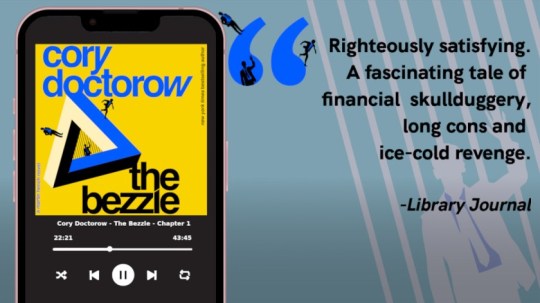
I'm Kickstarting the audiobook for The Bezzle, the sequel to Red Team Blues, narrated by @wilwheaton! You can pre-order the audiobook and ebook, DRM free, as well as the hardcover, signed or unsigned. There's also bundles with Red Team Blues in ebook, audio or paperback.

If you'd like an essay-formatted version of this post to read or share, here's a link to it on pluralistic.net, my surveillance-free, ad-free, tracker-free blog:
https://pluralistic.net/2024/01/25/today-in-tabs/#unfucked-rota
#pluralistic#productivity#life hacks#mozilla#firefox#open web#systems#getting things done#externalized memory#outboard brain#generativitiy
221 notes
·
View notes
Text
living as a system is honestly the important part. coming out as one isn't necessary, if you all feel it won't be safe. you do not have to disclose being a system, but living as one in whatever capacity you are able to is important. realizing it and figuring out ways to express yourselves and live your individual lives helps a lot more than telling folks who may or may not get it, such as family
try to find ways to enrich your lives as best as possible. let yourselves dress differently, talk differently, act differently. do differently hobbies. eat different foods. go to different places. pick up new interests. engage with different media. create different types of art. whatever constructive influence you feel from others inside, go ahead and nurture that
you don't have to know everyone's names yet to live and be independent. whether or not you have dissociative or other types of barriers shouldn't hold you back from being yourselves, whether that's in your headspace or innerworld, or expressing it on the outside in a way you all understand. this is crucial for your collective health and well being. it just helps to be able to be yourselves
#plural gang#plural system#plurality#system stuff#pluralgang#system#multiple#multi#multiple system#plural#systems#our writing#dissociative identity disorder#did#osdd#udd#dpdr
738 notes
·
View notes
Text
Tumblr Post of our Endogenic and Non-traumagenic Plurality Research
Endogenic & Non-Traumagenic Plurality
By Guardians System, a diagnosed traumagenic DID system with PTSD and CPTSD
For use by everyone, to be read by EVERYONE
Brought to you by sysmeds who say “I’m not reading all that” (/j)
Feel free to DM on Twitter at GuardiansSystemOpen for anonymous questions on Tellonym also under GuardiansSystemOtherwise, just comment! :)
Lists of Links
Put together by community members! (Not thoroughly checked)
Plurality/Multiplicity + Syscourse Resources and Findings
Pastebin by ButterflyBlood - contains info from the DSM-3 to the DSM-V, medical info, community info, Tulpa info, syscourse info, and a video
Cambrian's Thread of Experts
Thread by the Cambrian Crew - contains info from Dr Eric Yarbrough (Distinguished Fellow of the American Psychiatric Association), info from Dr Nijenhuis and Van Der Hart (two of the writers of the Theory of Structural Dissociation), info from the ICD-11 and DSM-V-TR, and an interview by Dr Richard Loewenstein (lead editor of the DSM-V’s section on DIssociative Disorders)
Studies into non-disordered and/or endogenic plurality
Pastebin by Oliviaset - contains multiple science/government links and a video
Collected Plurality Info - 8 pages of resources - Fractal System
Document by The Fractal System - contains explanations on multiple types of plurality and references links to each, contains community info, history info, academic info, and more
Scientific Papers on Endogenic Plurality - r/Plural
Post and comments by numerous systems/supporters - contains a massive amount of uncategorised links to all types of information on non-traumagenic plurality
Multiplicity Links - SARAH K REECE
Site by Sarah K Reece - a previously diagnosed traumagenic DID system that no longer fits the criteria but is still a system, links focus mainly on general helpful system information
Scientific Articles on Nondisordered Systems
Document by Tabellenblatt1 (?) - contains info specific to non-disordered plurality, including the interview by Dr Richard Loewenstein
Ex Uno Plures - Articles
Community site by Plures House - contains explanations on plurality, info on living plural, info on personal experiences, medical info, philosophical info, social info, and syscourse info
An Endogenic Proof Masterlist - Plural Anomaly
Document by Plural Anomaly - contains community info, academic info, and criticisms on the Theory of Structural Dissociation
Plurality Studies - Multiplicity and Plurality Wiki
Wiki made by numerous community members - contains uncategorised abstracts from medical info and info on Tulpas
Non-Traumagenic & Endogenic System Information
General medical/clinical studies and research
It's just a body: A community-based participatory exploration of the experiences and health care needs for transgender plural people
Study by numerous people including a system - repeatedly references and explains multiple types of plurality, both traumagenic and non-traumagenic
Multiplicity: An Explorative Interview Study on Personal Experiences of People with Multiple Selves
Study by numerous people - uses some outdated language, however, explores how systems exist both with and without Dissociative Identity Disorder
Conceptualising multiplicity spectrum experiences: a systematic review and thematic synthesis
Study by numerous people - explores how multiplicity exists outside of Dissociative Identity Disorder in a medical context in order to recommend appropriate health services
Critiquing the Requirement of Oneness over Multiplicity: An Examination of Dissociative Identity (Disorder) in Five Clinical Texts (Alternative Link)
Study by Kymbra Clayton - explains how multiple selves can be healthy without the need for singularity
NORMAL DIMENSIONS OF MULTIPLE PERSONALITY WITHOUT AMNESIA
Study by multiple people - uses slightly outdated language, describes how multiplicity can be considered natural without the dissociative disorders, and how the dissociative disorders could simply be expanding upon multiplicity
Cognitive processes in dissociation: An analysis of core theoretical assumptions
Study by numerous people - discusses potentially healthy dissociation and the existence of dissociation without trauma
MODES OF EXISTENCE: TOWARDS A PHENOMENOLOGICAL POLYPSYCHISM
Study by Mick Cooper - discusses alternative ways for multiple selves to exist
A plurality of selves? An illustration of polypsychism in a recovered addict
Study by Peter T.F. Raggatt - discusses the normality of non-traumagenic multiplicity and different ways for natural plurality to exist
A Jungian Perspective on the Dissociability of the Self
Study by Brian R. Skea - includes multiple mentions of Freud, extremely explicit and triggering language, and repeated use of outdated terms, however helps to provide an understanding of much older views on non-traumagenic dissociation and plurality
TRANSGENDER Mental Health - chapter 11
Book by Dr. Eric Yarbrough of the American Psychiatric Association - states repeatedly throughout the chapter that plurality is only a part of dissociative identity disorder and exists without the disorder, as well as trauma only being reported in some cases of plurality and that trauma is not the only cause for plurality, and states that plurality itself is only a collection of alters
"I've Learned to Treat my Characters like People": Varieties of Agency and Interaction of Writers' Experiences of their Characters' Voices
Study by multiple people - describes authors’ common experience of accidental multiplicity caused by their characters gaining autonomy
Dissociation in Trauma: A New Definition and Comparison with Previous Formulations
Article by Ellert R S Nijenhuis and Onno van der Hart (two of the writers of the Theory of Structural Dissociation) - page 27, at the end of the article, they recognise mediumship and similar practices as a “division of personality,” which is what they refer to the dissociative disorders as
Exploring the Experiences of Young People with Multiplicity
Research by Zarah Eve and Sarah Perry - begins with multiplicity only sometimes being applicable for a DID/OSDD diagnosis, and continues that multiplicity itself and the dissociative disorders are not the same, as well as some respondents not associating their multiplicity with trauma alongside the dissociative disorders not applying to some of the respondents, and having a section for some multiplicity not being based in trauma
Comparison of Brazilian spiritist mediumship and dissociative identity disorder
Study by multiple people - in comparing Dissociative Identity Disorder with Brazilian Spiritist Mediumship, it was found the two shared very similar results, only that the Mediumship results appeared slightly healthier than DID
Tulpamancy
Studies and research specifically on Tulpas, though can apply to other plurality
Tibetan Buddhist with a Tulpa - Opinion on Plurality
Post by Dharma Yokeyodasampa - a Tibetan Buddhist with a more traditional Tulpa asking community members for questions, discussions include what they think about plurality, western Tulpamancy, how their Tulpa feels, and the difference between western Tulpamancy and the Tibetan practice. (This is a post compiling and explaining most of it, with a response from Dharma.)
Personality Characteristics of Tulpamancers and Their Tulpas
Study by multiple people - examines and explores what Tulpas are, what they do, their role, Tulpa experiences, some history, and more
Sentient companions predicted and modeled into existence: explaining the Tulpa phenomenon
Study by Kaj Sotala - describes a theory on how Tulpas may be psychologically caused via “feedback loops” (can also be applied to various other types of plurality, such as multiplicity caused by authors/artists and caused by other disorders)
A Time for Tulpas
Thesis by Nick Stager - discusses what a Tulpa is, experiences with Tulpas, the development of Tulpas, how other practices may be similar, how an author can accidentally create Tulpas, and more
Tracking the Tulpa - Exploring the "Tibetan" Origins of a Contemporary Paranormal Idea
Book by Natasha L. Mikles and Joseph P. Laycock - explains what Tulpas are, how Tulpas are created both intentionally and unintentionally, some of the history behind Tulpa, and Tulpas based on theosophy instead of the Tibetan practice
Tulpas and Mental Health: A Study of Non-Traumagenic Plural Experiences
Study by Jacob J. Isler - explains what Tulpamancy is and how it can differ from Dissociative Identity Disorder but still be plural
Paranormalizing the Popular through the Tibetan Tulpa: Or what the next Dalai Lama, the X Files and Affect Theory (might) have in common
Article by Ben Joffe - explains what Tulpas are, how Tulpas develop, Tulpa experiences in the outside world, the difference between Tulpamancy and the Tibetan practice, some of the history behind Tulpas, Theosophy-related Tulpas, and Tibetan Sprulpa experiences
Making Friends - Transcript of a Podcast on Tulpas
(Slightly incorrect: more info here) Discussion by multiple people - explains multiple personal experiences with a Tulpa, actions of a Tulpa, accidental creation of Tulpas through writing, Tulpas taking over the physical body, Tulpas having a different identity, purposeful creation of Tulpas, discussions with professionals (Richard J. Loewenstein,) the difference between Tulpas and psychosis, the similarity between Tulpas and Dissociative Identity Disorder, how without distress then it can’t be disordered, and more
Daring to Hear Voices
Dalai Lama - Buddhist practices are open to those who need them
Clinical Information
Helpful medical information not specifically related to non-traumagenic systems
DID Brain Pattern Study Doesn't Measure Up - December 2018
Critique by Spot&Cerberus - discusses the multiple flaws with the MRI scan on DID patients
Moral Status and the Treatment of DID Study by Timothy J. Bane - discusses the current known treatments for DID in the context of integration being commonly used, how it may be unethical and unhealthy to force integration, and that a multiple can healthily exist
DID, OSDD, and UDD Diagnostic Guide (NZ)
Diagnostic guide by ACC (Accident Compensation Corporation) - the New Zealand guide to diagnosing patients with DID, OSDD, and UDD, includes history of the diagnosis, problems with the diagnosis, alternative diagnoses, requirements for a diagnosis, what to avoid in a diagnosis, what to look for in a diagnosis, and similar
The Theory of Structural Dissociation
Theory by multiple people - the most commonly used theory to explain dissociation, often specifically related to dissociative disorders
Problems with the Theory of Structural Dissociation
Research by multiple people - discusses multiple problems with the Theory of Structural Dissociation, including it being a theory, the discarding of derealisation, depersonalisation, dissociative fugue, dissociative amnesia, the lack of association with trauma and PTSD in the DSM-V, and proposes some different ideas
ICD-11 for Mortality and Morbidity Statistics
Book by the World Health Ogranisation - Dissociative disorders on 6B64
DSM DID ALTERATIONS
DSM-V-TR
DSM-V (Diagnostic and Statistical Manual of Mental Disorders, Fifth Edition)
Book by the American Psychiatric Association - Dissociative Disorders on page 336
DSM-IV-TR
DSM-IV
DSM-III-R
DSM-III
DSM-II-SPECIAL
DSM-II
DSM-I-SPECIAL
DSM-I
Plural History
Explanations and references to different parts of plural history
Plural History - 1811
Collection by Lb Lee - contains multiple parts of history in which systems of all types have existed (there are 4 different chapters)
A Partial History of Plural Self-Advocacy
Collection by Alt H - describes times in history starting from 1987 when non-traumagenic plural advocacy was recorded
It's Not Just a Tumblr Thing - Kerry Dawkins
Article by Ex Uno Plures - contains references in history to plurality outside of and before Tumblr
A Brief History of the Use of "System" in a Non-DID Space
Collection by Lb Lee - describes the history of the word “system” being used to describe those with multiple selves, and how it isn’t a disorder-specific term
A Quick'N'Dirty History of "System" as Plural Slang
Collection by Lb Lee - explains the history of the word “system” and the different uses
"Endogenic" was not coined by Freud
Collection by Sophie in Wonderland - a discussion on the anti-endos claim that “endogenic” was coined by Freud
Origin of the term Endogenic
Explanation by the Lunastus Collective - details how the term “endogenic” came to be created, what led up to it, and what happened after
I saw a post saying we should just believe RAMCOA surivors... okay... so how about this one?
Explanation by Sophie in Wonderland - describes how and why anti-endos think “system hopping” was stolen by endogenic systems from RAMCOA systems, including an explanation from the RAMCOA system that anti-endos reference
Community Explanations
Explanations on endogenic plurality by community members (sources are used)
Debunking the Anti-Endo Carrd - Guardians System
To be updated
What do Sysmeds say That is Transphobic/TERF Rhetoric?
Post by multiple people - a discussion on the comparison of sysmeds and transmeds, and how their arguments and the language they use is the same
Why Not Just Use Thoughtform?
Collection by Sophie in Wonderland and Olivia Set - describes why some parogenic systems prefer using Tulpa over Thoughtform
Debunking Sysmeds - Claims and Rebuttals
Carrd by Ozymandias& - lists claims that anti-endos make against endogenic systems, and critiques the claims alongside referencing studies
I would define a plural system as having multiple, compartmentalised, self-conscious agents - SophieInWonderland
Collection by Sophie in Wonderland - an explanation of the validity of endogenic and non-traumagenic systems complete with referenced research and studies
Studies and Research into Endogenic and Non-Disordered Plurality
Masterpost - Academia on Endogenic and non-traumagenic plurality
Post by Inclusive Syscourse - contains an explanation on the validity of endogenic and non-traumagenic plurality complete with referenced research
Claims There is No Research On Endogenics
Post by Unknown - a list of research on endogenic and non-traumagenic plurality alongside explanations and descriptions
Origins of Plurality and Levels of Dissociation
Study by The Phoenixes - uses the DES to gain insight into plurality not caused by trauma
The Tulpa Carrd - explain the nature and origins of Tulpamancy and what surrounds it
Carrd by Unknown - lists an explanation and some history of Tulpamancy alongside references to research
Likely Origins of "Tulpamancy is Cultural Appropriation"
Post by the Dragonheart System - critiques a Carrd claiming that Tulpamancy is cultural appropriation, referencing research and studies
Resources
General helpful resources for all systems
Multiplicity Wiki - A wiki by plurals and multiples, for plurals and multiples
Wiki by multiple people - contains terms, definitions, and general information on all types of plurality and multiplicity
Layman's Guide to Multiplicity
Guide by Unknown - contains terms, definitions, information, explanations, and experiences on multiple types of plurality
The Plural Association - For Dissociative Identity Disorder & all other forms of Multiplicity under the Plural umbrella
Organisation by the Stronghold System (?) - contains help sites for all types of struggling systems, alongside helpful information and articles on multiple areas
Pluralpedia - the collaborative plurality dictionary
Dictionary by multiple people - contains a massive amount of information on the majority of plural terms and history
Endogenic Hub - a site dedicated to endogenic plurality
Hub by the Hordes System - contains information and experiences on multiple types of non-traumagenic plurality, alongside explanations of what plurality is
More Than One - Plurality (or multiplicity) is the existence of multiple self-aware entities inside one physical brain
Site by Unknown - contains information on terms, different system origins, denounces myths about plurality, and different plural experiences
The Dissociative Initiative - For, by, and about people with multiplicity, dissociation, and amnesia
Run by Sarah K Reece - a support group for systems that contains different information and resources on plurality
Tulpa Info - "For Science"
Guide by Unknown - multiple different languages, explains what a Tulpa is, why they can exist, and where to begin when making a Tulpa
FAQ
If you’re a sysmed, you might end up here! Congrats if you do!
What is a system? A system is anyone who has more than one entity/identity in the body/brain.
What is plural/multiple? They mean pretty much the same as "system", only "plural" was made exclusively to be inclusive of every experience that involves many in the same body. E.g. if someone is an anti-endo or sysmed and uses the hashing "plural" to find friends, they're going to attract inclusive folks who support endos.
What is DID? DID stands for Dissociative Identity Disorder. It is a disorder in which a system experiences severe dissociation that heavily impacts their life on a day-to-day basis.
What is OSDD? OSDD stands for otherwise Specified Dissociative Disorder and is used when they experience similar symptoms to DID but are missing one of the diagnostic criteria. E.g. OSDD-1A is used when there's a lack of distinct identities or no identities. OSDD-1B is used when there's a lack of memory gaps. (The separate OSDD categories don't properly exist as a diagnosis themselves - they are carried over from DDNOS.)
What is UDD? UDD stands for Unspecified Dissociative Disorder. It's often used as a placeholder diagnosis by professionals to say that although there is a dissociative disorder, they're not sure what it is.
What is a non-disordered system? A non-disordered system is a system without DID, OSDD, or UDD. They don't experience the disorders or do not fit the criteria.
What is traumagenic, endogenic, mixed-origins, etc.? Traumagenic is a system that is formed from trauma. Endogenic is a system that is formed without trauma. Mixed-origins is a system that has multiple origins, E.g. some alters came from trauma and some did not.
What is a Tulpa? A Tulpa is a created identity that comes from repeatedly feeding information on one character or multiple characters into the brain. It can be purposeful or accidental.
DID/OSDD/UDD are trauma disorders? The diagnostic criteria for the disorders don't include trauma being necessary, nor does it anywhere else in the category. Trauma disorders and dissociative disorders are also categorised separately, and there are past studied cases of DID that weren't caused by trauma. The DSM-V-TR also includes a section that states trauma isn't necessary for a diagnosis.
You need trauma to be a system? The DSM-V specifies that a diagnosis of DID cannot be applied to cultural plurality. Culture-related plurality has existed and been documented for centuries, erased by colonisation and racism. Common cultural plurality includes Tibetan Buddhism, many Two-Spirit folk, medians, and mediums. These and more are all plural.
Dissociation is a trauma reaction? You’ll find nearly every if not every professional refers to some dissociation as “trauma-related dissociation” - take, for example, Kathy Steele, one of the writers of the Theory of Structural Dissociation, whose work consists almost only of “trauma-related dissociation”. That wouldn’t be necessary if dissociation only came from trauma. Dissociation is commonly shown to exist both inside and outside of other disorders. It’s especially common in BPD, ADHD, MADD, autism, and a few other disorders.
So only cultural and spiritual plurality can be non-traumagenic? They’re the most well-researched, but not the only non-traumagenic plurality. There are a few different theories as to how other plurality can form. Many experience their plurality caused by mostly unrelated disorders - autism, ADHD, BPD, Bipolar Disorder, MADD, etc. Others report accidentally creating alters, especially those who focus on characters, such as writers, artists, and authors. Yet more simply say they were born with their plurality, or grew up being plural without trauma being the cause. We believe plurality that hasn’t existed since birth could be caused by a “feedback loop” (here) in which one’s brain, after being fed repeated information, begins to predict the information, therefore creating actions to fill that prediction. This could be used to explain Tulpamancy (repeated info), artists/authors/writers (repeated info), ASD (masking and special interests), ADHD (masking and hyperfixations), BPD (splitting and more), MADD (repeated info), Bipolar (different states), and so on.
Endogenic systems harm traumagenic systems? We and others have asked multiple times for sysmeds to tell us why they think endogenic systems hurt them, and every time we’ve either received silence or something that’s already been covered. Besides that, anti-endos hurt other traumagenic systems with their BS far more than endogenic systems might hurt them.
Anti-endos hurt traumagenic systems? Yup, and very frequently, considering sysmeds repeat the exact same information. Sysmeds say you have to be disordered to be a system - traumagenic systems exist without being disordered. Sysmeds say endogenic systems stole traumagenic terms - a mix of the communities coined the majority of system terms, and “endogenic” was coined by a traumagenic system. Sysmeds say what someone went through isn’t traumatising or horrific enough - traumagenic systems can be caused by any amount of trauma, no matter how “insignificant” it seems. Sysmeds repeatedly tell endogenic systems they need to have trauma - telling someone they have to have trauma when they either don’t or have amnesia around it can be incredibly damaging and has hurt many traumagenic systems. Sysmeds say they need to go to a psychologist or a therapist and be diagnosed - many traumagenic systems can’t be diagnosed. Many endogenic systems have trauma, just know they weren’t formed from it, and anti-endos repeatedly mock them about having trauma. There’s much, much more, but to end it, as a traumagenic system, we’ve personally been assaulted, harassed, threatened, told to kill ourself, and had our trauma completely invalidated and discarded by anti-endo traumagenic systems.
Expired Links
Looking for alternatives
Endogenic Research (Text Form) - NightFallSystem
----------------------------
Hey everybody.
This is a list of the research and resources we've compiled over the last year or so that refers in some way to plurality, especially in the context of being endogenic and non-traumagenic supportive.
We often argue this subject on Twitter, alongside (hope you don't mind the tags) @cambriancrew and @sophieinwonderland . We've included a few of their posts in this, as they do share some wonderful information. Sophie deals in mainly Tulpamancy, we believe? And Cambrians does a wide range of things. They've both been incredibly helpful, so big credit and massive thank you to those two (and anyone else in this document) :)
Feel free to link this post or the document itself to anyone. Link it everywhere. Feel free to tag us too, as your friendly neighbourhood endo-friendly traumagenic DID system with PTSD and CPTSD. Our collective pronouns are phe/phex/phins, and we're collectively called Guardians or Guardians System.
Hope this helps some folks! If anything's wrong in this post, mention it in the notes (we think that's how Tumblr works?) and we'll adjust it in the Google Document. Alternatively, if you'd prefer to remain anonymous or would like to talk to us directly, you can check our LinkTree at the top of this page. We're always open to feedback and new research! We're especially interested in making our document more reader-friendly, as it can be a bit of an eyesore. but we're not the best at formatting documents.
If we do receive updates to edit some information, we'll be doing so on the document, so always double-check there in case there's been a change. If there are enough updates, we'll redo this post, but hopefully, that won't be necessary for a long time, because formatting all this in Tumblr is more than enough for us.
Thank you for reading!
-Rakan (not Marcus, fuck you Marcus)
#pluralgang#plurality#endogenic#plural#plural system#plural community#traumagenic#did#osdd#system#systems#multiplicity#endos safe#pro endo#trauma#dissociation#dissociative#osddid#tulpa#tulpamancy#endo research#just stop judging others please ffs
288 notes
·
View notes
Text
my brain: Oh? time heals all wounds?
my brain: *makes yesterday seem like it was two weeks ago*
#actually did#did osdd#sysblr#dissociative system#actually dissociative#did community#systems#did alter#osddid#dissociative amnesia
915 notes
·
View notes
Text


RELATIONSHIP PROTECTOR
❤️ — a term to describe an alters whos specific role is to protect the system from toxic relationships, family, heartbreak, and friendships.

Request for anon, thank you for your patience!! Color-picked (but adjusted) from Diance.
FREE TO USE FOR SYSTEMS.
#did osdd#actually did#did#actually osdd#osddid#osdd system#osdd#system roles#system terms#system#flag designs#my flags#flags#did system#system coining#systems
266 notes
·
View notes
Text


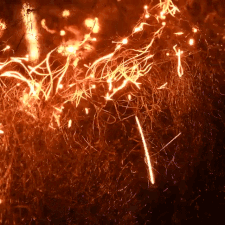

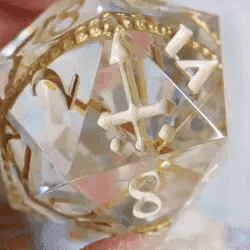
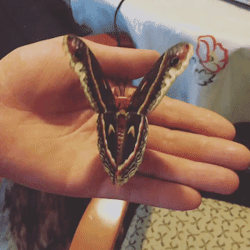
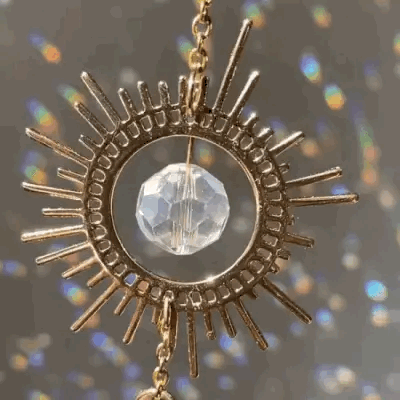


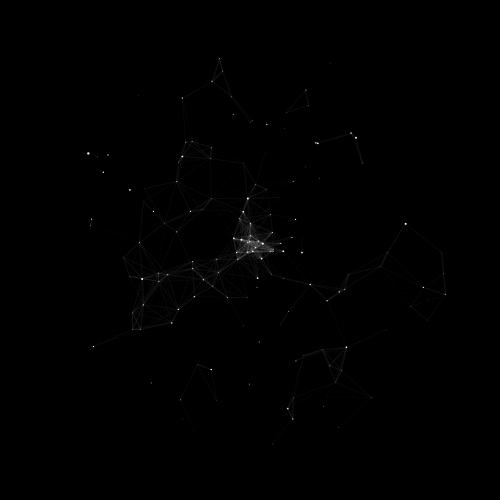

( X / X / X ) ( X / 🐍 / X ) ( X / X / X )
dark starfolk stimboard with themes of moths, fire, and space in black and gold.
requested by: 💫 anon | made by: crowley
#🌌 - stimboard#🐍 snake slithers - mod crowley#💫 anon#fictive#system#systems#plurality#plural system#fictive board#alterhuman#nonhuman#starfolk#starfolk otherkin#constellation#star stim#constellation stim#fire stim#moth stim#stars#fire
78 notes
·
View notes